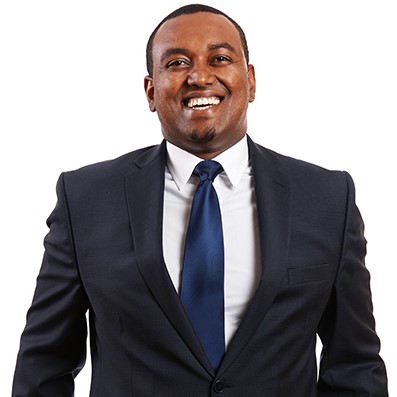Hospice Ethiopia Mobile Phone Monitoring Study

Develop an innovative healthcare system for palliative care in Ethiopia: co-design and user testing of a mobile phone based remote monitoring system (E-PC)
| Principal Investigator: Dr. Nicola Carey Department/School: School of Health Sciences UN Sustainable Development Goals and/or GCRF Challenges addressed Goals 9, 10 and 17 of the 2030 sustainable development agenda which identify the need to reduce inequality within countries, promote and oster innovation, and strengthen the means of implementation Details of DAC-List Countries including partners based in DAC countries: Ethiopia |
Synopsis:
Will be used as part of reporting requirement and therefore should be suitable for an external audience.
Ethiopia has limited health infrastructure, with only one doctor per 50,000 patients. Palliative care (PC) is in early stages of development; limited services means patients frequently experience PC symptoms including pain, breathlessness and agitation. Mobile phone technology, an effective way to increase quality, safety and sustainability of healthcare systems globally (eHealth), has demonstrated benefit within PC, but yet to be utilized in Ethiopia.
Combining expertise in eHealth and Palliative Care in Ethiopia and UK, we will co-create a remote monitoring system using mobile phone technology (E-PC) with PC patients, families’, healthcare professionals and software developers in Ethiopia. This system will record patient-reported information in order to provide timely and appropriate self-care information and advice; a low-cost solution to transforming the management of PC symptoms.
The remote monitoring system will be tested by Ethiopian PC patients, and their feedback used to produce a final version for evaluation in our next study.
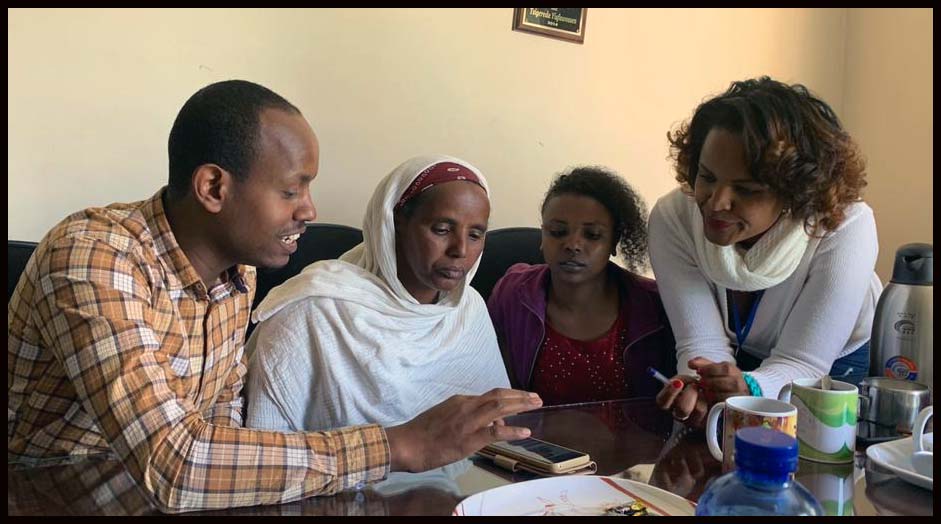
Project Details:
1. What specific issue development will you address and/or what specific outcome are you seeking to achieve?.
There is a need to transform PC provision in Ethiopia where <1% of 150,000 cancer cases/year receive specialist treatment, due to late presentation and lack of services, and > 1.2 million have HIV diagnosis.
Enhanced communication technology available via 3/4/5G, creates an opportunity for Ethiopia to overcome shortfalls in current health infrastructure and accelerate progress towards universal PC coverage, where 82% live in rural locations.
Our preliminary work at Hospice Ethiopia (HE), identified the majority of PC patients own a 2/3G mobile phone, report good coverage and willingness to use a mobile phone to report their symptoms.
Aim: to co-create a remote monitoring system using mobile phone technology for use by PC patients in Ethiopia (E-PC), with PC patients, families and key stakeholders (i.e. doctors, nurses & software-developers).
The proposed study is essential prior to undertaking clinical evaluation to determine E-PC benefits on PC symptoms including pain, breathlessness and agitation.
Rationale
2. Why/how is the issue and/or outcome of importance to the DAC-list countries and why have you chosen the DAC countries you have with whom to collaborate?
Ethiopia is a poorly developed sub-Saharan African country of 94 million, predicted to become the world’s 9th most populated nation by 2050. PC, a recognised component of care by WHO improves quality of life and symptom control for those with life-threatening illnesses e.g. HIV/AIDS and non-communicable diseases, introduced by the Federal Ministry of Health (FMOH) in 2015 is extremely limited, offering <6% of current WHO recommendations.
PC provision faces similar issues to the rest of Ethiopia’s healthcare system: poverty; weak economies; a lack of healthcare professionals and, in many cases, patients living in isolated rural areas far from healthcare facilities with poor transport.
Increasing disease and a lack of curative services means there is an urgent need for a step-change that: i) improves and accelerates progress towards universal PC coverage & ii) make best use of limited available resources. Currently there is a lack of technology to support PC patients or family members in Ethiopia to better manage their symptoms. Previous visits to Ethiopia allowed us to undertake preliminary work and establish a network combining clinical, academic, and technological expertise across the UK and Ethiopia. We are ideally placed as NA, a fluent Amharic speaker, visiting academic at Surrey and PC advisor to HE and FMOH, currently resides in Addis Ababa. Strong links with Ethiopia mean we can operationalise quickly working with local communities, the leading telemedicine provider in Ethiopia, FMOH and HE to deliver the project on time and complete this important first-step in transforming PC provision in Ethiopia.
Activities/Reporting Progress
3. What will you do to address the issue / achieve the outcome i.e. how will the funding be used?
This 18-month collaborative action research study working with PC patients and key stakeholders in Ethiopia, builds on the established telemedicine platform, hosted by Telemed Medical Services.
This study will be conducted in two phases:
Phase 1 (months 1-8):
Interviews/ focus groups with PC patients (n=20) and key stakeholders (n=10) (e.g. doctors, nurses, support workers, families and software developers), recruited via HE and established contacts at PC hospital hubs in Addis Ababa, will explore views and opinions about use and acceptability of mobile phone technology, including symptoms that should be assessed, information requirements, and preferences for content; choice of device and technology (i.e. 2G or Smart phone or tablet) (EA/ NA).
Audio-recorded data will be subjected to thematic analysis. N.A, a fluent Amharic speaker, will work alongside project workers to support the process. A summary of findings will be offered to participants and feedback invited to confirm findings (EA/ NA/ NAL/NC/RM).
Recommended procedures for recruiting participants and obtaining informed consent will be followed.
Phase 2 (months 9-19):
A facilitated consensus event will be used to agree and finalise the software and its functionality. PC patients (n=8-10) from our Ethiopian advisory group will be presented with the resulting E-PC prototype and asked i) to use it for 2 weeks, and ii) report initial thoughts on functionality, content, product acceptability and feedback any bugs/crashes. E-PC will then undergo a further cycle of feedback, development and consensus events to produce a final version for user-testing in our next study (YW/ NA/ EA/ RM).
Project milestones: Regular team meetings, and reports will allow close monitoring of progress. A steering group (including key stakeholders (n=10-12)) will meet six times, provide external review, and allow early identification of problems (ALL).
Dissemination and next steps: A project website will detail the study and progress reports (NC). Findings will be discussed at feedback events for key stakeholders, and conference presentations in Ethiopia and UK; and i) inform decisions regarding future funding applications and develop strategy for wider implementation, ii) be submitted for publication in peer-review journals (ALL).
Partnership-building: Research linkages between local communities, clinicians, academics, and software developers will be strengthened supporting future grant applications (ALL).
Team/Track Record:
4. Why is this team well placed to deliver? What evidence can you provide of your team’s ability to deliver?
Our team has worked together for several years, successfully delivering substantially funded projects in UK, Ethiopia and other countries. We have visited and completed preliminary scoping work exploring current issues in PC provision, establishing partnerships with local communities and healthcare providers, businesses, and government that will facilitate timely delivery of the project milestones. YW, is for example, founder of the leading telemedicine service in Ethiopia and NA, a fluent Amharic speaker, visiting academic at Surrey and PC advisor, currently resides in Addis Ababa.
Pooling clinical, academic, and technological
expertise with strong links to local communities and healthcare providers, our
team offers opportunities for international partnership working that will
increase capacity and capability in Ethiopia.
EA: will contribute to research activities & strategic and operational
direction of project.
NA: responsible for overseeing day to day management in Ethiopia.
NAL: will provide research support to NC and assist with data analysis
NC: will lead onoverall study management, and dissemination strategy.
CR: significant experience in clinical medicine, R&D; and capacity building in Ethiopia; will contribute strategic and operational direction to project.
YW: will lead software development.
RM: will provide strategic and operational direction, with specific focus on e-health methodology, and system development
Strategic Alignment
5. How does this fit with the University’s GCRF strategy? How will this project be used as a pathway to achieving external GCRF funding?
The proposed project will:
- directly impact health by using advanced communication technology to transform PC management in Ethiopia, a LDC where 82% live in rural locations.
- work with diverse local communities and partner organisations strengthening research linkages, increasing research skills, capacity and capability in Ethiopia
This innovative study is predicated on our established network spanning local communities, healthcare providers, businesses, and government in Ethiopia and the UK.
Upon conclusion of the proposed study we will be ready to undertake robust clinical evaluation of E-PC to determine its effects on symptoms (i.e. pain, nausea, fatigue, breathlessness); quality of life; supportive care needs, family disease burden, costs of care, and provide cost estimates for wider implementation.
The next stage will be to seek further funding from the MRC Health Systems Initiative Awards; the Bill and Melinda Gates Foundation or the Wellcome Trust to evaluate the intervention on a larger scale.
Strategic Alignment
5. How does this fit with the University’s GCRF strategy? How will this project be used as a pathway to achieving external GCRF funding?
The proposed project will:
- directly impact health by using advanced communication technology to transform PC management in Ethiopia, a LDC where 82% live in rural locations.
- work with diverse local communities and partner organisations strengthening research linkages, increasing research skills, capacity and capability in Ethiopia
This innovative study is predicated on our established network spanning local communities, healthcare providers, businesses, and government in Ethiopia and the UK.
Upon conclusion of the proposed study we will be ready to undertake robust clinical evaluation of E-PC to determine its effects on symptoms (i.e. pain, nausea, fatigue, breathlessness); quality of life; supportive care needs, family disease burden, costs of care, and provide cost estimates for wider implementation.
The next stage will be to seek further funding from the MRC Health Systems Initiative Awards; the Bill and Melinda Gates Foundation or the Wellcome Trust to evaluate the intervention on a larger scale.
Impacts /Benefits
6. Future expected benefits to and impacts on DAC nations and how these will be realized?
Ninety percent of the world’s population own a mobile phone creating significant opportunities to transform healthcare services, supported by ongoing advancements in communication technologies. This is the first stage of a plan work to develop an innovative and sustainable system for PC in Ethiopia. Using mobile phone technology the aim is to develop a remote patient monitoring system to overcome current inequities in PC provision, offering a low cost solution to improving PC symptom management.
Establishing a mobile phone based solution in Ethiopia will create a novel model of sustainable PC. This has the potential to transform self-care and supportive care using a mechanism whereby PC patients record their symptoms and rapidly identify when to seek input from a healthcare professional. In the future, this will enable PC patients and their family members in Ethiopia to identify problems and necessary treatment to be initiated earlier, making effective use of limited available resources. It is envisaged that such a system would be welcomed by healthcare professionals and positively impact on the lives of PC patients and their families.
E-PC is anticipated to impact on quality of life, symptom control, supportive care needs, and family disease burden.
This initial study will lead on to larger research projects, exploring cost estimates for wider implementation and scaling up to the broader population of Ethiopia and across other sub-Saharan African countries.
If found feasible and acceptable, the E-PC system could be the impetus to fundamentally change the management of long term conditions across other LDCs.
Equality/Diversity and Inclusion
7. How you will look to ensure equality, diversity and inclusion is embedded within the programme?
Transforming the PC system in Ethiopia will reduce inequality, ensuring inclusion and diversity in line with SDGs goals 9, 10 and 17.
As a diverse team, we understand the E-PC system must be culturally sensitive, acceptable and accessible to Amharic language speakers.
Working with diverse local communities and key stakeholders throughout will ensure the proposed E-PC system meets this requirement. Emphasis will be placed on balance in gender, age groups, ethnicity, social groups and experience from Ethiopia at each stage of creating and testing the prototype.
Our patient and public advisory (PPI) group comprising PC patients and family members (n=6-8) will meet 3-4 monthly throughout, with 1-2 invited to join the project steering group will assist with advising and preparing information sheets, focus group guides, newsletters, reports and participation in our feedback event, and testing of E-PC.
Meetings will be facilitated by
bilingual Amharic/ English speaking team members.
Research Information Sheets
- 2.service user-information sheet 15th Jan 2019 (pdf)
- 3 Stakeholder-information sheet 15th Jan 2019 (pdf)
- Carers- interview-focus group guides Jan15th 2019 (pdf)
- Service users Interview-focus group guide- Jan 15th 2019 (pdf)
- Stakeholder interview-focus group guide Jan 15th 2019 (pdf)
Project Reports
Project Leadership
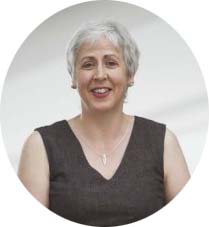
Dr. Nicola Carey, Reader in Long Term Conditions
School of Health Sciences
Faculty of Health & Medical Sciences
University of Surrey
https://www.surrey.ac.uk/people/nicola-carey
Nicola is a Reader and lead for the Long term Conditions and Ageing Cluster with the School of Health Sciences. Nicola is a qualified nurse who has worked in a variety of posts across the country in primary care as both a practice nurse and nurse practitioner. Her research interests include quality improvement, workforce development, non-medical prescribing and the use of technology to support patient self-management.

Follow Nicola on Twitter @nmp_nicolacarey

Dr. Nicola Ayers
Dr Nicola Ayers trained as a nurse and has worked in the Middle East and Ethiopia for many years. Her main focus has been refugee health. From this, the importance of palliative care for vulnerable groups in developing countries became apparent. In 2006, Nicola’s Master’s thesis considered how Ethiopian and Somali refugees access end of life care in government hospitals in Yemen. In 2014, Nicola completed her PhD, investigating the cultural aspects of caring for the dying in Ethiopia. Nicola currently works as a Palliative Care Advisor for the Federal Ministry of Health and is a Palliative Care Specialist for Hospice Ethiopia, a Non-Governmental Organisation. Nicola helped develop the National Palliative Care Guidelines and also both hospital and community guidelines for Ethiopia. She also is a Visiting Senior Lecturer at the University of Surrey in the UK.
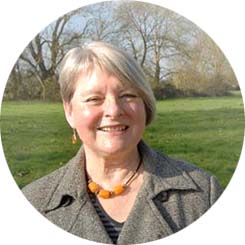
Dr. Catherine Royce
I’m a medical doctor. I spent the first 15 years of my career in the NHS training as a general surgeon focusing on gastro-intestinal and breast cancer and preparing a Mastership thesis on the intravenous nutritional support of patients undergoing major cancer surgery.
The following 15 years in international clinical research leading projects in both pharmaceuticals and medical devices in areas as diverse as breast cancer and malaria, in both these cases resulting in a new treatment being approved for patients.
I moved into the NGO sector in 2004 and have been working in east Africa with a group of African medics, paramedics and scientists, principally in Ethiopia, teaching clinical research methodology and increasing clinical research capability including developing new treatments for a parasitic disease, visceral leishmaniasis.
For 4 years, I worked as a general surgeon at Arba Minch hospital after obtaining surgical accreditation from the Ethiopian Federal Ministry of Health.
Currently I’m assisting Dr Nicola Ayers with the national roll-out of the palliative care strand of the first 5 year national cancer strategy for Ethiopia.
Publications include various cancer topics, hospital malnutrition, malaria and leishmaniasis.
Collaborators
Ephrem Abathun (EA) Executive Director, Hospice Ethiopia, Addis Ababa, Ethiopia
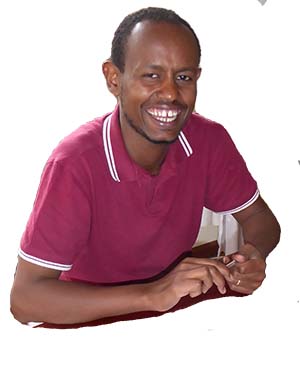
Dr Nicola Ayers (NA): Palliative Care Advisor, Federal Ministry of Health, Ethiopia; visiting Senior Lecturer, University of Surrey
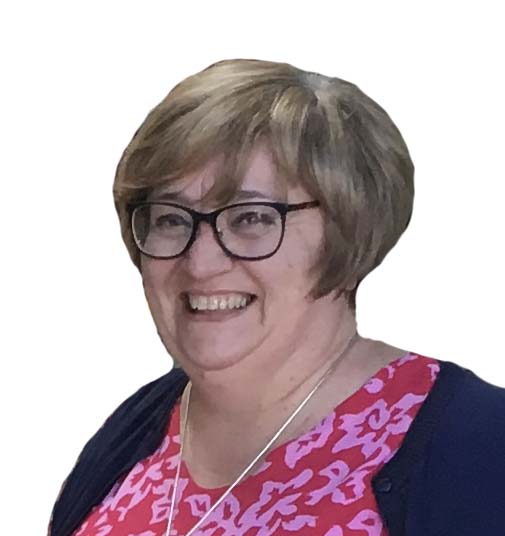
Professor Roma Maguire (RM); Professor of Digital Health and Care and Director of Research, University of Strathclyde
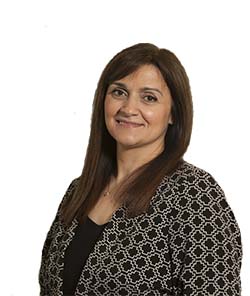
Dr Catherine Royce (CR); Freelance Medical Advisor, & previous volunteer surgeon Arba Minch Ethiopia.
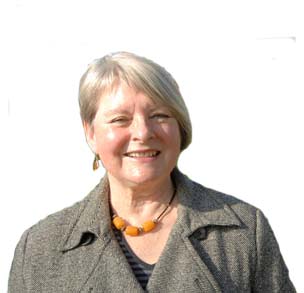
Dr Yohans Wodaje (YW): founder and CEO of ‘HelloDoctor’ & General Manager, Telemed Medical Services, Addis Ababa, Ethiopia Dr Nouf Alkahmees (NAl) Princess Nourah Bint Abdulrahman University, Saudi Arabia- currently visiting researcher in the School of Health Sciences, University of Surrey
